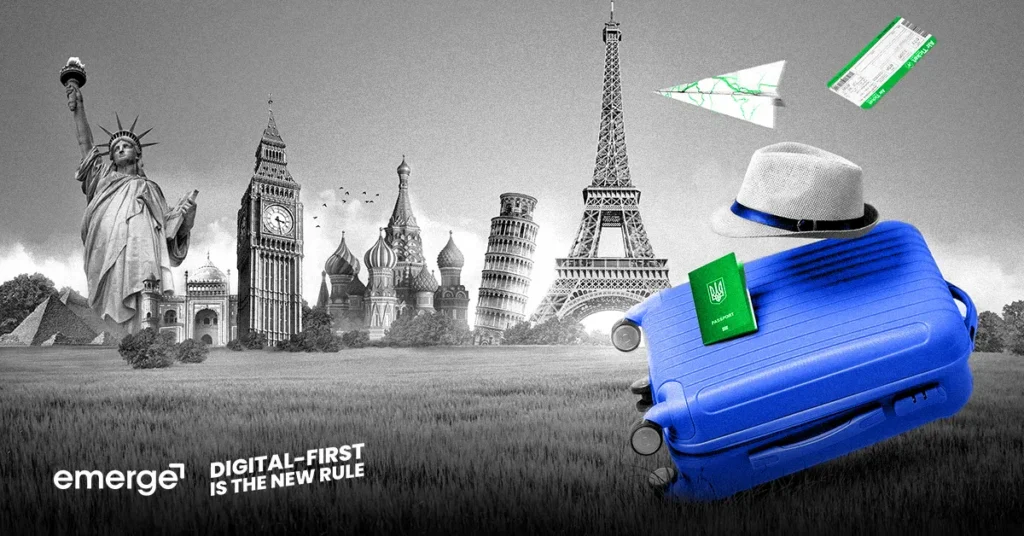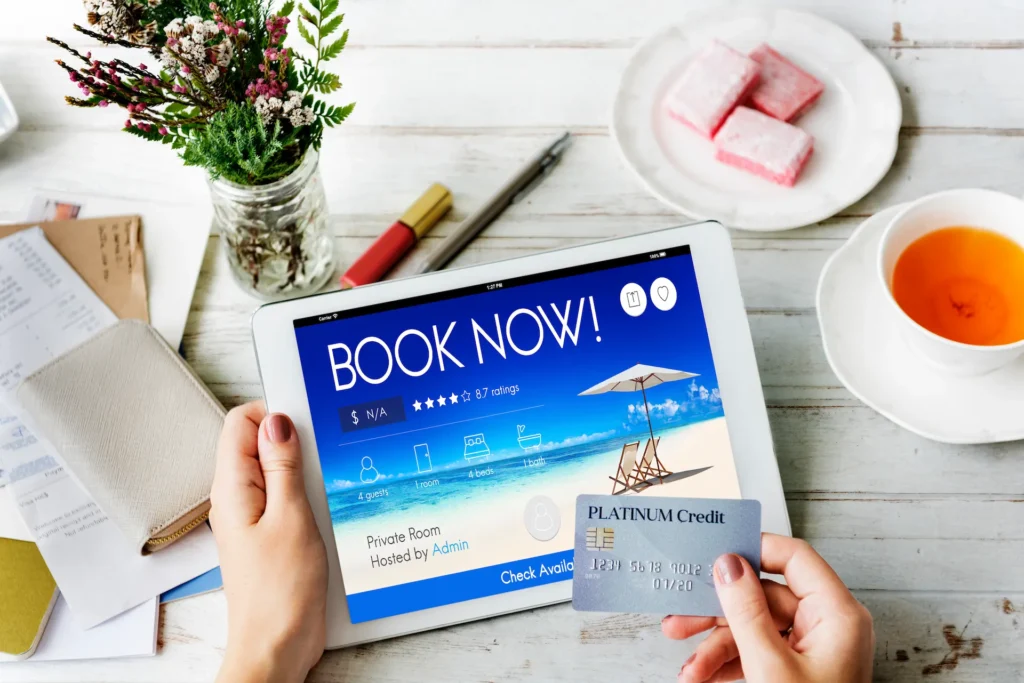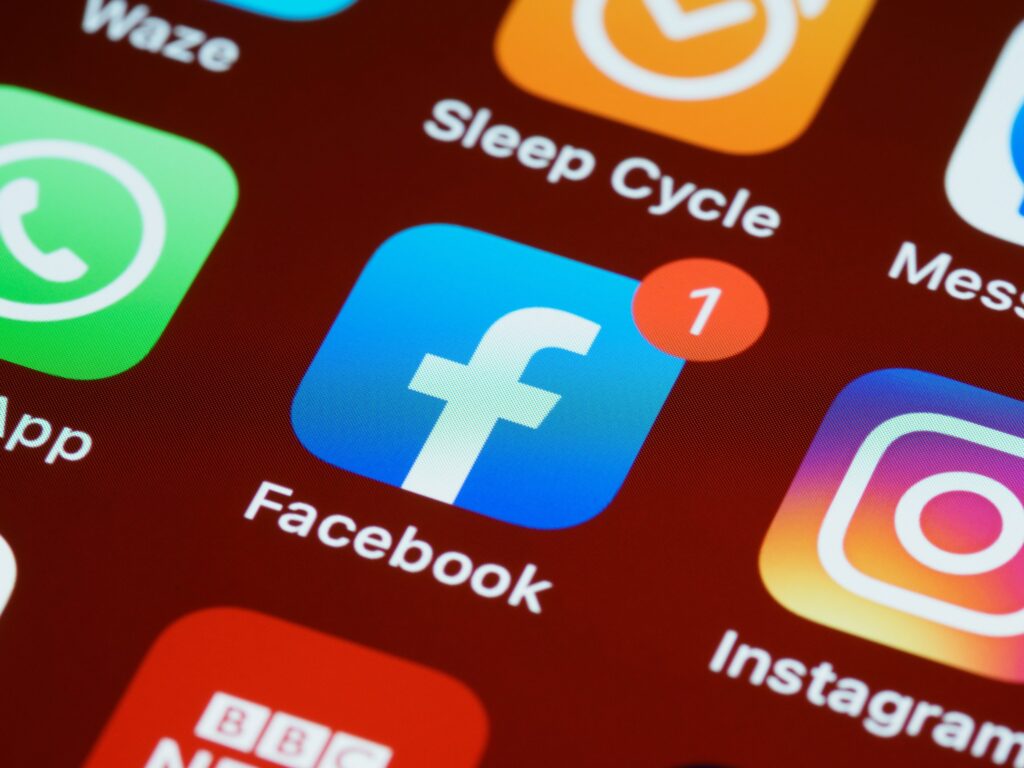
In today’s digital age, the travel and tourism industry heavily relies on digital marketing to thrive and stay competitive. The internet has revolutionized how people plan their trips, book accommodations, and explore new destinations. As a result, digital marketing has become essential for businesses in this industry to reach their target audience effectively.
From customers’ dreaming, planning, and reminiscing of their vacations, digital marketing has a role. We’ll gladly shed more light on this so you can have a smooth and well-constructed digital campaign below!
Stages of Digital Marketing for Travel & Tourism: Dreaming and Planning

Dreaming and planning this is the stage where all you focus on is trying to entice your audience. Why is this essential? Can you name anyone who doesn’t have a dream destination? Everyone has been exposed to a place they want to visit, be it a movie or a simple online post. That shows how essential digital marketing is because it kills your audience’s motivation to travel. Let them see what’s there to explore, imagine what it’s like if they were traveling, and even make them engage on your posts with their travel buddies too!
One of the key reasons why digital marketing is crucial for the travel and tourism industry is its ability to reach a vast global audience. Through various online platforms such as social media, search engines, and travel websites, businesses can showcase their offerings to potential travelers from all corners of the world. This level of exposure was unimaginable before the advent of digital marketing.
#Instagrammable
Today, businesses go out of their way to ensure they can be #Instagrammable. Aesthetics are key for audiences today. Everyone wants a money shot in a place that looks beautiful! So promote those spots where you know the view is perfect for a photo op! Showcase it to your audience and invite them to take their snaps there. Who knows, maybe it will become a landmark that when people see it, they immediately know it’s from your brand.
Engagement posts
Furthering the reach of your pages and posts is one of the primary things that help with your exposure online, and one of the most effective ways to do so organically is through engagement posts. Most people have relatable experiences when traveling and touring with their significant other, friends, or family. Use these to your advantage! Showcase relatable and engaging content that would make your audience want to tag their loved ones. This way, your audience won’t only be more attracted to your brand, they’ll attract more potential customers too!
SEO & Targeted Ads
Now, digital marketing allows travel businesses to target specific demographics and interests. By utilizing data analytics, search engine optimization, and consumer insights, marketers can tailor their campaigns to appeal directly to individuals most likely interested in their services. Use the right keywords and know who your audience is. This targeted approach increases conversion rates and ensures that marketing efforts are focused on those most likely to convert into customers.
Seasons
Not everyone has the leisure time to travel whenever they like. Most of the time, people only get to travel during the holiday season or when there are long weekends, thanks to special occasions. That’s why dates are essential for travel and tourism digital marketing. Remind your audience of a potential vacation season, and you’ll be sure to entice them into making their move. Do this and the mentioned dreaming and planning strategies to lead your audience to the next stage– booking.
Stages of Digital Marketing for Travel & Tourism: Booking

Booking is the next stage and is definitely the most important. At this stage, your audience is decided and curious about your offers, so you can expect common inquiries that will either make or break your customers’ decisions. Digital marketing’s role is essential here because digital platforms have made closing the deal twice as easy as traditional ways. Today, with only a few clicks, you get a customer to book your services. That in itself is self-explanatory. Undoubtedly, the travel and tourism industry has evolved thanks to this innovation. But how else can you step it up a notch?
Call to Action
“Stop drawing with the barkada; go book now!” or “Book now we have limited slots!” A simple call to action can convince your audience that it’s time to move from planning to booking. The first is a little push, while the second lets the audience know they must book urgently. It’s also like a flex, saying that many people want this experience, so don’t you dare miss out; in a different approach, you’re promoting your brand too!
Inquiry Response
Entertaining these inquiries and responsiveness is vital because losing the timing means losing a potential client. Not all audiences have the patience to wait for your 1 hour response time, so it’s still best to respond as soon as possible! So if you have a chatbot, send a message button or message templates for frequently asked questions, use it to your advantage so your potential clients can decide and eventually close the deal.
Stages of Digital Marketing for Travel & Tourism: Experiencing and Reminiscing

In travel and tourism, a customer’s experience doesn’t end when their trip does. One of the best offers of digital marketing is that it can provide real-time feedback and engagement opportunities. Knowing how your customers feel and their satisfaction rate is essential to all businesses, and digital marketing makes it as easy as a few clicks. Through digital marketing, travel businesses can actively engage with their audience through social media platforms by responding to inquiries, sharing user-generated content, and providing personalized recommendations. This direct interaction builds trust with potential travelers, enhances customer satisfaction, boosts credibility, and builds rapport.
Influencers’ pull to the audiences is undeniable. The magic behind this is that it’s as if you get to experience traveling with them. That’s why influencers’ travel vlogs are so effective! So if you have connections with an influencer, don’t be afraid to collaborate and connect with them cause it really helps with your brand’s exposure.
Testimonials and Review
Credibility isn’t the easiest thing to achieve. With social media platforms where you have little to no control over what your audience says about you, showcasing good reviews and testimonials can go a long way. Plus, it’s also promoting your brand using a different voice– an actual person who experienced your offers. For some, this is twice as convincing as brands’ own voices.
ROI and Analytics
Last but not the least, digital marketing enables businesses in the travel industry to track their return on investment (ROI) accurately. With various analytics tools available today, marketers can measure the success of their campaigns in terms of website traffic, bookings generated, click-through rates (CTRs), conversion rates, and more. This data-driven approach allows them to make informed decisions about future strategies and allocate resources effectively.
Prime Example of Digital Marketing in Travel & Tourism
As important as technicalities are, creativity still shines as much in the travel & tourism industry too. Check out one of our own ingenious tourism campaigns below and get inspired to really think outside the box! The Philippines took the digital marketing perspective of travel and tourism to a new level as they promoted its destinations without using any actual pictures. Instead, dancers recreate some of the most iconic landscapes with their costumes and choreography, ultimately ending it with a bang where the video shows its message: “The people make the destination – it’s more fun with you.”
Conclusion
Overall, digital marketing plays an essential role in the success of the travel and tourism industry by providing global reach, targeted advertising capabilities, real-time engagement opportunities, and accurate ROI tracking. So be sure to design your digital marketing campaign considering the three stages of digital marketing for travel & tourism. Businesses in the travel and tourism industry that embrace these strategies, from dreaming and planning to booking to experiencing and reminiscing, will undoubtedly gain a competitive edge in an increasingly digitized world.
If you’re looking for the right digital marketing solutions compatible with your brand, click here to book a free consultation with our experts!





